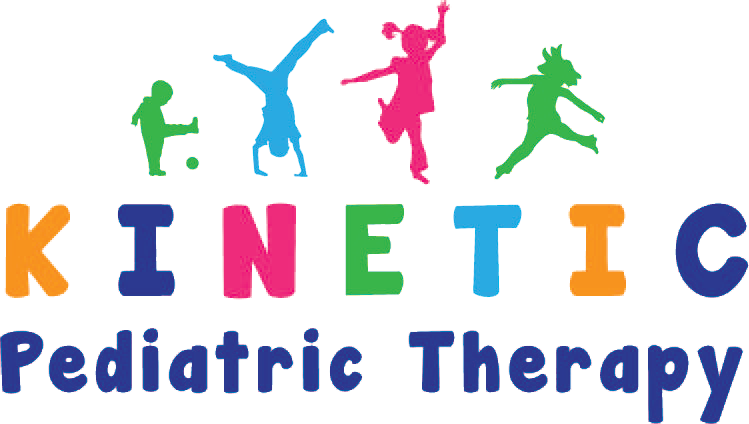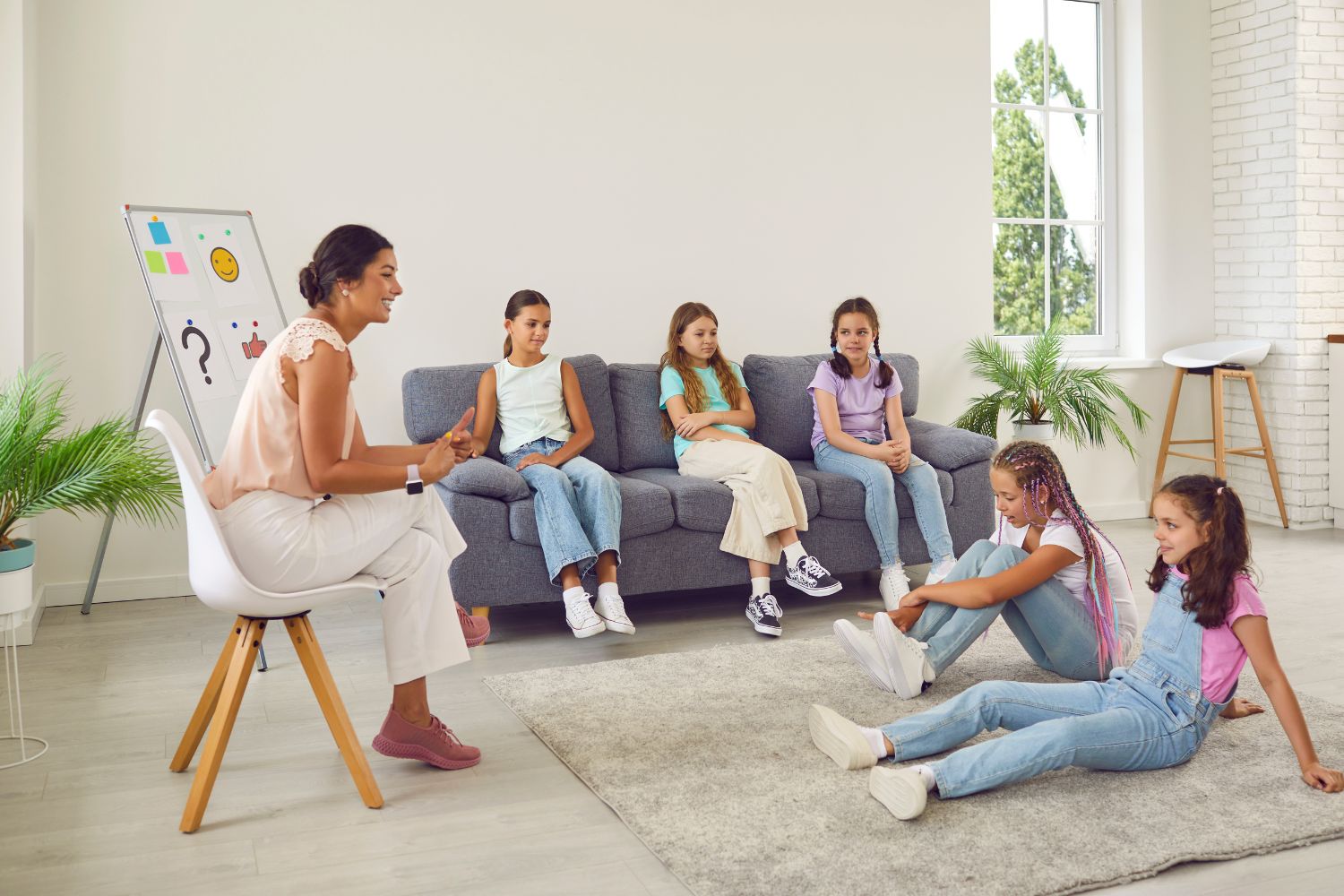
Implementing Positive Behavioral Interventions and Supports (PBIS) in Schools
Creating a supportive and inclusive school environment is essential for student success. One of the most effective strategies for achieving this is through Positive Behavioral Interventions and Supports (PBIS). This proactive approach focuses on fostering positive behaviors, preventing challenging ones, and equipping students with the tools they need to thrive academically, socially, and emotionally.
At Kinetic Pediatric Contract Therapy, we specialize in helping schools implement tailored behavioral therapy strategies, including PBIS. With evidence-based techniques, we empower educators, students, and families to create environments that promote success for all learners.
What Are Positive Behavioral Interventions and Supports?
Positive Behavioral Interventions and Supports (PBIS) is a framework designed to enhance academic and social outcomes for students by encouraging positive behavior and reducing the need for reactive discipline measures. Unlike traditional behavior management methods, PBIS focuses on teaching and reinforcing desirable behaviors while addressing the root causes of challenging ones.
The core principles of PBIS include:
- Prevention: Creating structured environments and clear expectations to minimize disruptive behavior.
- Teaching: Actively teaching social and emotional skills, as well as expected behaviors.
- Reinforcement: Using positive reinforcement to reward desired behaviors.
- Data-Driven Decision-Making: Using data to identify patterns and adjust interventions as needed.
By focusing on proactive, positive strategies, PBIS creates a foundation for long-term success in schools.
The Benefits of Positive Behavioral Interventions and Supports
Implementing Positive Behavioral Interventions and Supports offers numerous benefits for students, educators, and schools as a whole. These include:
- Improved Student Behavior
PBIS helps students understand and meet behavioral expectations, leading to fewer disruptions in the classroom and a more productive learning environment.
- Enhanced Academic Outcomes
With fewer behavioral interruptions, teachers can dedicate more time to instruction, allowing students to engage more deeply in learning.
- Increased Emotional Well-Being
By focusing on positive reinforcement and emotional skills, PBIS supports students’ mental health, fostering a sense of belonging and confidence.
- Reduced Need for Disciplinary Actions
PBIS minimizes the need for reactive discipline, such as suspensions or expulsions, by addressing behavioral issues proactively.
- Empowered Educators
Teachers equipped with PBIS strategies feel more confident in managing classrooms and supporting diverse learners.
At Kinetic Pediatric Contract Therapy, we collaborate with schools to maximize these benefits, ensuring that PBIS is implemented effectively and sustainably.
Key Components of Positive Behavioral Interventions and Supports
Implementing PBIS involves several essential components that work together to create a cohesive and effective system. These include:
- Establishing Clear Expectations
A successful PBIS program begins with setting clear, consistent expectations for behavior. Schools should define these expectations in a way that is easy for students to understand and apply across different settings.
For example:
- Be Respectful: Treat others with kindness and respect.
- Be Responsible: Take ownership of your actions and belongings.
- Be Safe: Follow rules to keep yourself and others safe.
Visual aids, such as posters or digital reminders, can reinforce these expectations throughout the school environment.
- Teaching Behavioral Skills
One of the key tenets of Positive Behavioral Interventions and Supports is actively teaching students the skills they need to succeed. This includes:
- Conflict resolution
- Emotional regulation
- Effective communication
Using role-playing, social stories, or group activities can make learning these skills engaging and practical.
- Positive Reinforcement
Recognizing and rewarding positive behaviors is central to PBIS. Rewards don’t have to be elaborate—they can include verbal praise, tokens, or privileges. The goal is to create a system where positive behavior is consistently acknowledged and encouraged.
Examples of positive reinforcement:
- Acknowledging a student for helping a classmate
- Rewarding consistent adherence to behavioral expectations with extra recess time
- Highlighting individual achievements in a class meeting
- Addressing Challenging Behaviors Proactively
PBIS emphasizes understanding the root causes of challenging behaviors rather than simply reacting to them. This involves:
- Observing and identifying triggers
- Adjusting the environment or routine to prevent challenges
- Using targeted interventions for students who need additional support
For instance, a student who struggles with transitions might benefit from visual schedules or advance warnings before a change in activity.
Implementing PBIS at Different Levels
PBIS operates on a multi-tiered framework to ensure that every student’s needs are met. These tiers include:
Tier 1: Universal Support
At this level, PBIS strategies are applied school-wide to establish a positive culture. Clear expectations, teaching practices, and reinforcement strategies benefit all students.
Tier 2: Targeted Support
Some students may need additional interventions, such as small group sessions or mentorship programs, to address specific behavioral challenges.
Tier 3: Individualized Support
For students with more significant needs, PBIS includes personalized plans tailored to their unique challenges. These plans often involve collaboration between educators, therapists, and families.
At Kinetic Pediatric Contract Therapy, we provide expert guidance at every level, helping schools implement effective strategies for all students.
Strategies for Integrating Behavioral Therapy into Classroom Environments
Collaboration Is Key to PBIS Success
The success of Positive Behavioral Interventions and Supports depends on collaboration between educators, therapists, families, and students. Open communication and shared goals ensure that everyone is working together to create a supportive environment.
Here’s how collaboration can enhance PBIS:
- Educators: Implement daily strategies and provide feedback on what works in the classroom.
- Therapists: Offer specialized behavioral interventions and training for staff.
- Families: Reinforce positive behaviors at home and share insights about their child’s needs.
- Students: Take an active role in setting personal goals and recognizing their progress.
Why Choose Kinetic Pediatric Contract Therapy for PBIS?
At Kinetic Pediatric Contract Therapy, we’re dedicated to helping schools implement Positive Behavioral Interventions and Supports effectively. Here’s why we’re a trusted partner:
- Expertise: Our therapists are experienced in working with students with diverse needs, using evidence-based PBIS strategies.
- Customized Solutions: We tailor our approach to each school’s unique culture and challenges.
- Ongoing Support: From initial training to regular check-ins, we provide continuous guidance to ensure success.
Visit our behavioral therapy page to learn more about our services and how we can help your school implement PBIS.
Building a Brighter Future with PBIS
Implementing Positive Behavioral Interventions and Supports is an investment in your students’ futures. By fostering positive behavior, reducing challenges, and empowering educators, PBIS creates a foundation for academic and social success.
If you’re ready to make PBIS a cornerstone of your school’s approach, contact Kinetic Pediatric Contract Therapy today. Together, we can create an inclusive and supportive environment where every student has the opportunity to thrive.
Please Share




